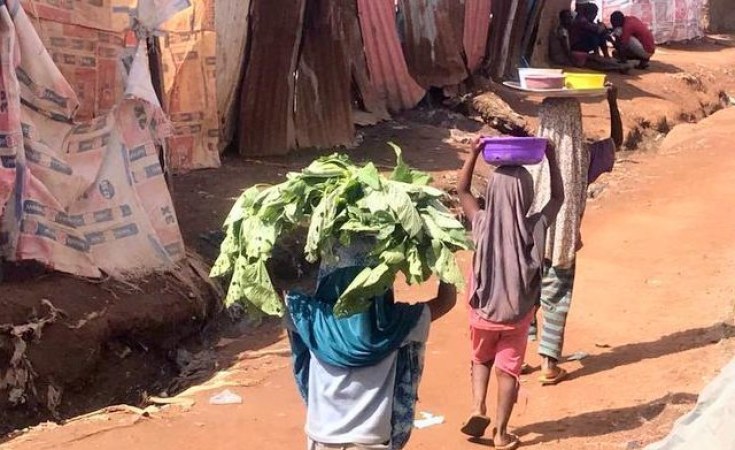More than 10 million Nigerian children do not have the opportunity to attend school, and that is the highest rate in the world. Even at that, many of the children who are lucky to be in the classrooms come with ragged or torn polythene school bags. That is the true story of Nigeria told on the last International Day of Education.

Sidney Poitier, the first Black man to win the Academy Award for Best Actor, wrote a book he titled The Measure of a Man: A Spiritual Autobiography. In an interview, Oprah Winfrey asked Sidney Poitier: “On page 100, you wrote about one of the greatest lessons your father gave you on the measure of a man. What is the measure of a man?”
“My father’s point of view was that the measure of a man is how well he cares for his children. And that stayed with me,” Sidney Poitier answered. Today, if we, Nigerians, collectively measure ourselves based on the scale of Sidney Poitier and his father, we would be complete failures in life on account of the wicked ways we have treated our own children. Lest we forget, there is an internationally recommended benchmark that countries spend 15-20 per cent of their national budgets on education.
But in the 2021 budget, only a paltry 5.7 per cent was allocated to education by the Federal Government. In 2022, the allocation was marginally increased to 7.2 per cent. For the 2023 budget, 8.8 per cent was given to education.
Sadly, the majority of us, especially our leaders, are hardly worried about these conditions we put our children in. Instead, it is the international agencies and foreigners like Peter Hawkins, UNICEF representative in Nigeria, who are drinking the proverbial medicines for our own headaches.
Hawkins said in 2021: “As we celebrate the International Day of Education today, we must take a close look at what is happening to our children in Nigeria, and the opportunities they are missing out on when they lack education.
“We need to look towards communities – leaders, parents, teachers and caregivers – and together, find the best strategies to ensure that all children enrol into school, have access to continuous learning and ensure they emerge with quality skills that equip them for a prosperous future.” Down the line, up to 2023, the situation has even worsened.
And yet, Hawkins has another set of worries about us and our children: “We also need to ensure that children are safe when they are in school – no child should be afraid to enter a classroom – afraid their school might be attacked or that they will be kidnapped. And no parent should fear sending their children to school.”
In 2021 alone, there were 25 terrorist attacks on schools. A total of 1,440 children were abducted, while 16 children were killed. In March 2021, about 618 schools were shut down in Sokoto, Zamfara, Kano, Katsina, Niger and Yobe states, over the fear of attack and abduction of pupils and members of staff.
UNICEF and all of us agree that Nigeria’s education system can be transformed through adequate funding. We also believe that Nigerians have an opportunity in 2023 to elect leaders who care for the education of our children.